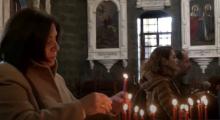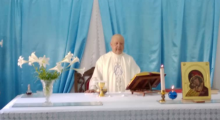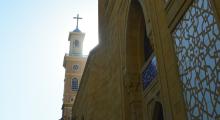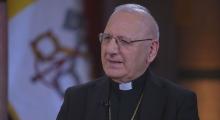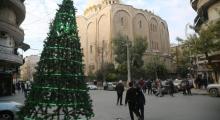Issued by the Catholic Center for Studies and Media - Jordan. Editor-in-chief Fr. Rif'at Bader - موقع أبونا abouna.org
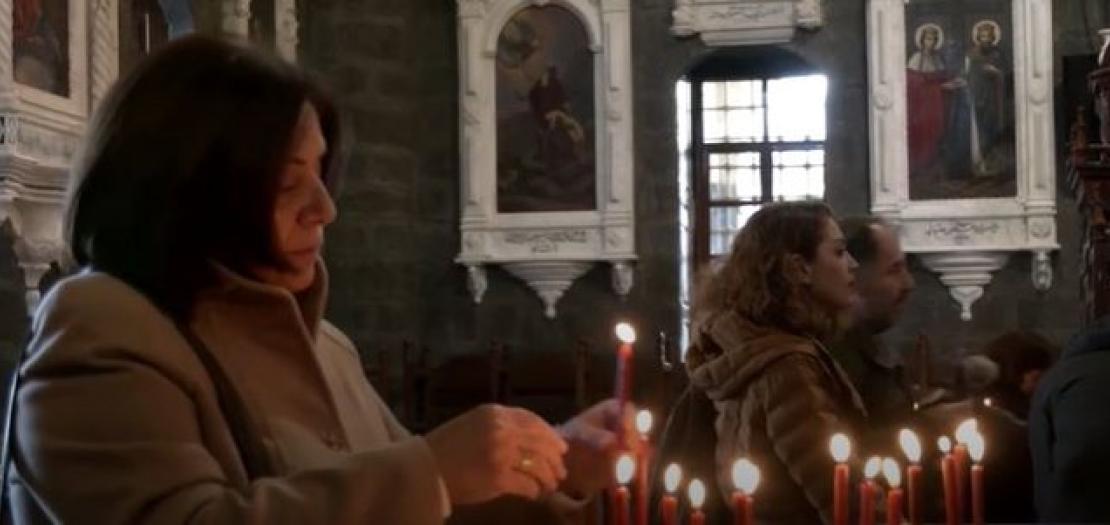
As Syria marks the transition to the new regime, ACN (Aid to the Church in Need) has gathered firsthand testimonies, providing an on-the-ground look at the current situation in key regions, including Homs and Aleppo, where people are dealing with the uncertainties of a post-regime time.
In Homs, the mood remains cautious, as people took to the streets for demonstrations last Friday. While food and fuel supplies are available, they remain limited, and prices are steadily rising. Schools open again today, Monday. The fear of what the future holds for Christians is palpable. Though thankful to have avoided civil war, the Christian community is concerned about future legislative action.
ACN spoke to one contact who highlighted this growing concern. “My message to the world is the importance of international support for Christians to establish a civil constitution, rather than an Islamic Sharia-based constitution. If the constitution is based on Sharia law, Christians will undoubtedly have to leave the country because personal freedoms will be restricted,” the source told ACN.
The concern is that the country is transitioning from a regime that suppressed all dissent to one that may limit personal freedoms in the name of religion. “Christians do not have any force capable of securing their rights in terms of the constitution, institutional life, and civil governance. There is fear that we have moved from a regime that silenced everyone to a regime that does not allow others to live as they wish, with personal freedoms,” the source continued. There is growing fear that the country could move towards an extremist Islamist system, where religious ideology may override personal freedoms.
Meanwhile, in Aleppo, the atmosphere is more subdued, but still cautiously optimistic. People are attempting to resume their normal lives, with small signs of Christmas appearing around the city. Churches have started putting up decorations, with the new authorities urging citizens to celebrate and improve the city’s atmosphere. “We came to leave everything better than it was,” the authorities told the people, according to the consulted sources. Despite the initial rise in prices, ACN has learned that prices have started to stabilize, with foreign brands, particularly from Turkey, now available at lower prices than local products.
The new authorities in Aleppo have assured the public that Christian schools will remain operational, and they open their doors today. Hospitals have reopened as well, with local medicine factories starting to produce again. Though the country is still recovering from the hardships and strict embargoes of the past decade, things are slowly improving.
The Sunday Masses took place without incident in both Homs and Aleppo. Offering a moment of hope and a breath of relief from the uncertainty of the Christian community in anticipation of Christmas, the faithful gathered to pray amid the unpredictable future they are facing.
It is a fact that the Christian community remains cautious about the future, their trust in the authorities deeply shaken after 13 years of conflict. “After all the suffering and hardship, it is very difficult for us to trust anyone or the new authorities easily,” one of Aleppo’s Christians explained to ACN.
ACN research reports that while there have been occasional incidents and reports of religious discrimination or aggression, there are no signs of systematic persecution at this point, and these remain isolated incidents.
ACN continues to maintain direct contact with its multiple partners and with Church leaders in Syria, who have met with the new authorities in both Aleppo and Damascus several times during last week. The charity has been committed to supporting Christians since the beginning of the war in 2011 and ask the international community to oversee the transition to assure religious freedom in Syria.


